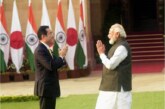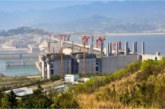Dr Arvind Kumar*
*President, India Water Foundation
China’s policy toward Afghanistan is a mixture of many paradoxes. Beijing perceives ample commercial opportunities in Afghanistan. However, it alone cannot explore those opportunities without the support of other regional governments that might prefer to limit China’s influence there. China is apparently opposed to a long-term Western military presence in its backyard because it fears that an abrupt US/NATO withdrawal from Afghanistan could risk important Chinese commercial and security interests in the region. Besides, Beijing also nurses apprehension that the growing strength of Islamist extremists in Afghanistan is increasing the terrorist threat to China itself as well as its close ally Pakistan. At the same time Chinese leaders worry that supporting the anti-Taliban coalition militarily would make China a more likely target of Muslim terrorism and alienate Beijing from Afghanistan’s future government.
From 1949 through the mid-1970s, Beijing had developed good relations with Kabul. In the aftermath of Soviet invasion of Afghanistan (1980-1988), relations between Kabul and Beijing collapsed. While adopting a low-key profile, China assisted the anti-Soviet insurgency by providing weapons and training in collaboration with the United States and Pakistan. China did not normalize relations with Afghanistan until 1992. Subsequently, Beijing withdrew its diplomatic staff from Kabul in February 1993 and did not reopen its embassy until February 2002.1
Problem of Narcotics
Afghanistan is currently the world’s largest national opium producer. Curbing the influx of narcotics from Afghanistan has become priority for Beijing. Recent years have seen surge in the volume of narcotics entering China from the Golden Crescent—a heroin-producing zone comprising portions of Afghanistan, Iran and Pakistan.2 In 2004, the Chinese government estimated that as much as 20 percent of the heroin available in the PRC originated from Afghanistan3; that figure is likely higher in 2010.
It is interesting to note that the increasing volume of narcotics entering China has coincided with growing demand for illicit drugs. Narcotics use in China increased by 9.2 percent in 2008.4 Sharp rise in narcotics consumption and drug-related cases of HIV/AIDS due to the influx of Afghan drugs is Xinjiang and other regions. According to one report, Xinjiang’s local police prosecuted 1,563 drug-related cases, arrested almost 2,000 suspects, and seized 144 kilograms of imported heroin transported from Pakistan and Afghanistan in 2008.5
There are frequent reports of Afghan Taliban militants using revenues from the opium trade to purchase weapons, fund training, and buy support are widespread. Other Islamist terrorist movements active in Central Asia also finance activities through narcotics trafficking. The resulting increase in the strength of the Islamist terrorist groups risks empowering Uyghur militants and threatens China’s newly acquired economic interests in Afghanistan. The Chinese President Hu Jintao reportedly circulated an internal memo calling on security forces in Xinjiang to combat narcotics trafficking more aggressively.6
Economic Relations
From 1994 to 2002, when Afghanistan was in the throes of a civil war, Chinese-Afghan trade ranged between $17-39 million annually. Despite the end of the Taliban regime following the American invasion in late 2001, and the establishment of new Afghan government institutions under President Hamid Karzai, Chinese-Afghan economic ties remained modest until only recently. Beijing provided Afghanistan with some financial assistance in support of various reconstruction projects, such as $10 million for an irrigation complex at Parwan and a hospital in Kabul. In May 2003, the two governments signed an Economic and Technical Cooperation Agreement, which provided $15 million to the Afghan government in Chinese grants.7 According to the Chinese Ministry of Commerce, China’s trade with Afghanistan was still below $50 million annually in 2007 and 2008.
Political ties also remained modest. It was only in 2006 that Karzai visited Beijing to meet with the Chinese President Hu Jintao. On that occasion, the two presidents signed a bilateral treaty of friendship and cooperation.8
Since 2008, China has rapidly emerged one of Afghanistan’s largest foreign investors. China’s state-owned Metallurgical Group (MCC) has purchased a controlling stake in what could be the world’s largest copper field at Aynak. According to the Afghanistan and British Geological Surveys, the copper deposit there contains 240 million tons of material with a grade of 2.3 percent copper in the central portion of the deposit.
The Chinese bid for the mines included the cost of building a 400-megawatt, coal-fired power plant and Afghanistan’s first railroad, which will convey freight from western China through Tajikistan to the site and from northern Afghanistan to the country’s southeastern border with Pakistan.
Nonetheless, Chinese and other foreign investors presumably desire to acquire additional natural resources in Afghanistan if the security situation permits. According to the Chinese government, in 2008, Chinese firms were engaged in 33 infrastructure projects (such as road construction) in Afghanistan, valued at almost half a billion dollars, in addition to the Aynak copper investment.9
Limited Support
China has offered general support for the Afghan government’s efforts to fight the Taliban and drug trafficking. In a speech in June 2008, Chinese Foreign Minister Yang Jiechi stated that Beijing “would continue to enhance cooperation with Afghanistan on law enforcement and intelligence sharing and take an active part in the international efforts to set up an anti-drug security belt” and that “capacity building and personnel training have always been the focus in China’s assistance to Afghanistan.”10 However, China’s security ties with Afghanistan remain limited.
China policy of dealing with Islamist extremism in Afghanistan is somewhat ambiguous. On the one hand, Beijing does not want Islamist extremists to triumph there, since they could then use these territories, especially Afghanistan, to attempt to spread extremism to its own territory. At the same time, China is reluctant to face Islamist militants to confront directly in order not to tarnish its image as anti-Muslim among the Islamic countries. Therefore, it favours US/NATO take the lead in fighting Islamist insurgents in Afghanistan and elsewhere also relieves China of having to fight them directly.
Future Prospects
Viewed in broad spectrum, China is silently developing a well-concerted strategy to ensure its presence in important Afghan economic sectors. Having maintained cordial relations and kept out of controversies, Beijing is well positioned to resume its traditional policy of dealing with whichever government that is in power in Kabul.
Until then, China is most likely to assist the counterinsurgency campaigns in Afghanistan by investing in the country’s raw material sector and helping to develop transportation, communication and other networks that the Chinese could use to better exploit these natural resources. These contributions are likely to help divert Afghans away from illicit commercial activities such as opium production. They will also provide additional revenues for an Afghan government struggling to sustain its enormous security establishment, and whose upkeep costs more than the size of the annual gross domestic product.
The Chinese institutions can help Afghans impart education in various technical fields beneficial to the country’s economic recovery. Under the provisions of the Aynak copper deal, 60 Afghan students will study engineering in China starting in 2010. With an academic exchange mechanism in place, this figure could easily be increased. China can also help in training Afghan police forces.
The main flaw in China’s Afghan strategy is its dependence on Western forces to check the Taliban insurgency and establish a secure investment climate in Afghanistan without much security support from Beijing. Failure of NATO efforts in ensuring security in Afghanistan can add to China’s worries in finding itself without sufficient means to protect its large and growing economic and geopolitical stake in Afghanistan.
In order to secure its interests in Afghanistan, Beijing can be expected to reach an agreement even with the Taliban should it regain power in Kabul. China can presumably offer diplomatic and economic relations with the new regime if it did not expropriate Chinese investments in Afghanistan or resume exporting jihadi ideology and terrorists into the Chinese territory. However, the success of such a fallback strategy is closely linked to the future of the Taliban.
NOTES
1. “China and Afghanistan,” Ministry of Foreign Affairs of the People’s Republic of China, 25 August 2003.
2. China Daily, 21 August 2007.
3. John Fox, “Can China Save Afghanistan?,” European Council on Foreign Relations, 29 September 2008.
4. “Drug Crime on the increase in China”, Xinhua News Agency, 25 February 2009.
5. China Daily, 10 March 2009.
6. South China Morning Post, 15 September 2007.
7. “China and Afghanistan”, Ministry of Foreign Affairs of the People’s Republic of China, 25 August 2003, available at http://www.fmprc.gov.cn/eng/wjb/zzjg/yzs/gjlb/2676/t15822.htm.
8. “China Pledges Continued Support to Afghanistan’s Reconstruction,” China View, 20 August 2008.
9. Michael M. Phillips and Shai Oster, “China Work Together to Rebuild Afghanistan,” Wall Street Journal, 20 June 2009.
10. “China Supports Afghanistan in Reconstruction, Development”, China View, 13 June 2008.
.


